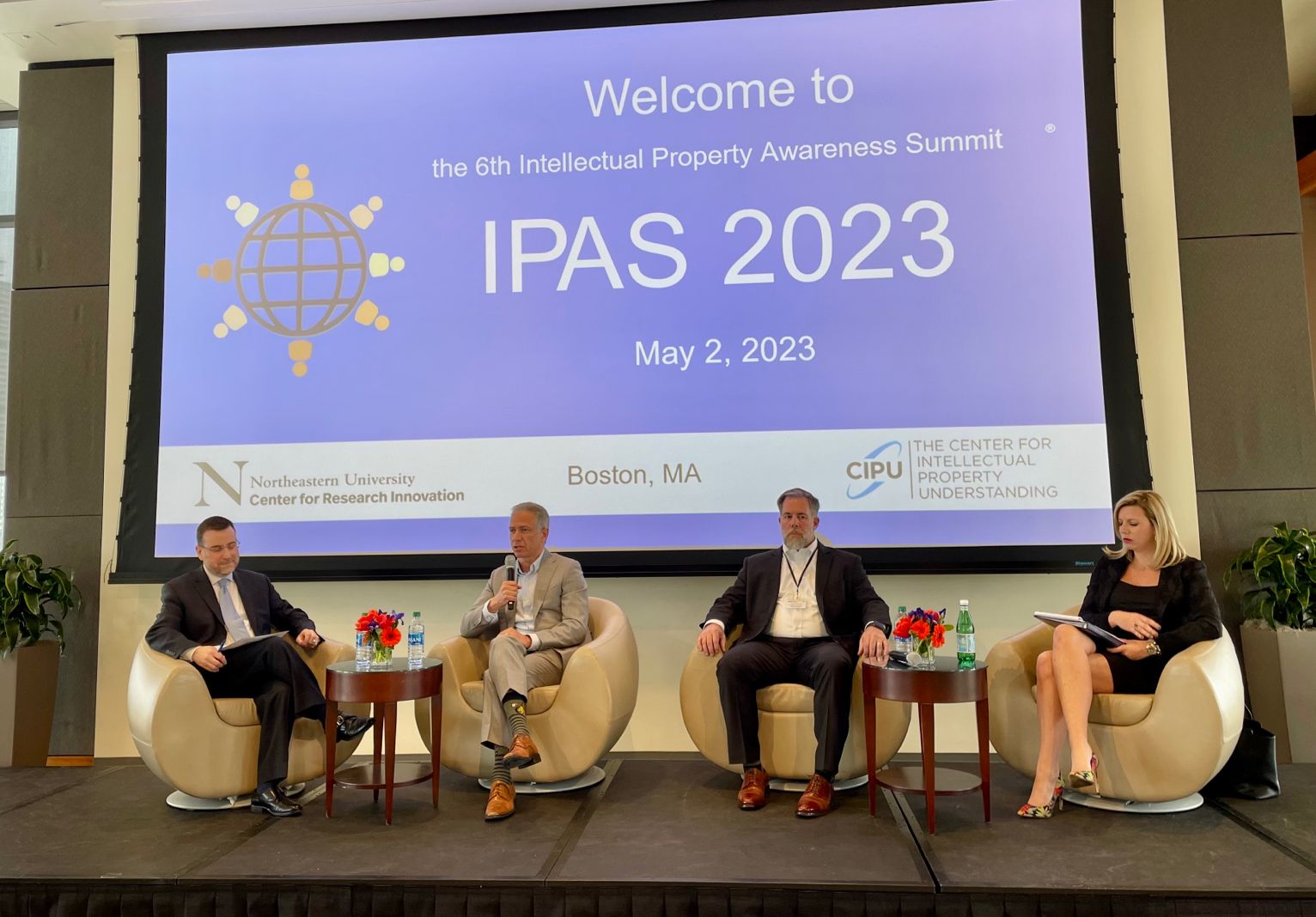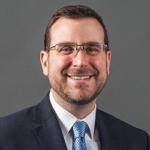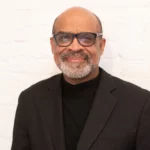“Iancu drew a stark vision of a future in which the latest advances in telecommunications, geolocational services and other technologies with obvious military applications are more quickly grasped by [China], a reality that could play out if venture capital continues to view U.S. patents as an uncertain investment.”

Photo by Madeleine Key
On May 2, Northeastern University hosted the IP awareness and literacy organization The Center for Intellectual Property Understanding (CIPU) for its 6th Intellectual Property Awareness Summit (IPAS), titled Bridges, Not Barricades. The view of Boston’s skyline from the 17th floor conference room on St. Botolph Street served as an appropriate backdrop to a series of expert panels exploring efforts to unleash the next generation of American economic development by accelerating popular understanding of the value of obtaining IP rights.
More than 120 people attended this year’s edition of IPAS, including 80 in-person attendees and a few dozen virtual participants. The one-day conference was kicked off by a keynote address by Kara Miller, columnist of “The Big Idea” for The Boston Globe and founding host of the public radio show “Innovation Hub,” who was able to shine a stark light on the stigma often attached to IP rights and how that stigma causes the next generation of innovators and creators to miss out on the benefits of intellectual property.
“In many ways, young people are exactly the audience you want to talk to about the power of creativity – whether that creativity is in fashion, music, tech start-ups or videos. But the system that protects those creators is rarely discussed. And it means that the money that could flow to creative people often never does. Especially to people who don’t, in the general course of their lives, encounter IP lawyers.” – Kara Miller
Improving IP Awareness: A Critical Component of Leading the Global Innovation Race
Bridging the divide between the intellectual property community and the wider consuming public, especially those demographics that could be best served by protecting their IP rights, was a major focus during several of the panels at this year’s IPAS. A recent study on IP awareness and attitudes published by the United States Intellectual Property Alliance (USIPA) showing low levels of IP understanding among American consumers was the focus of the day’s first panel. Topics covered after the day’s lunch break included strategies for introducing IP topics into educational curricula as early as grades K-12, as well as personal success stories from several innovators of diverse backgrounds highlighting the importance of proper IP enforcement.
Headlining the day’s discussion was a panel who laid bare the importance of fixing uncertainty in the U.S. patent system to meet the significant national security threat posed by a technologically advancing China. This panel was comprised of several thought leaders in patent law including Andrei Iancu, Former Director of the USPTO and Co-Founder of the Council for Innovation Promotion; Adam Mossoff, Law Professor at George Mason University’s Antonin Scalia Law School and Senior Fellow at Hudson Institute; Patrick Kilbride, Senior Vice President of the U.S. Chamber of Commerce’s Global Innovation Policy Center; and Kendalle Burlin O’Connell, CEO of MassBio. Iancu in particular drew a stark vision of a future in which the latest advances in telecommunications, geolocational services and other technologies with obvious military applications are more quickly grasped by our nation’s most significant rival, a reality that could play out if venture capital continues to view U.S. patents as an uncertain investment.
The following comments come from several panelists who attended and spoke at IPAS 2023.
 Madeleine Key, Senior Strategist at inventRight and Innovation Columnist at Forbes
Madeleine Key, Senior Strategist at inventRight and Innovation Columnist at Forbes
“Collaboration is vital to raise awareness of intellectual property. Bruce Berman and his team have a knack for gathering the most important and interesting voices from across government, business, and education who are working to advance the health of the system as a whole. Exploring the tensions between different perspectives and networking in person at IPAS are highly worthwhile.”
 Adam Mossoff, Law Professor at George Mason University’s Antonin Scalia Law School
Adam Mossoff, Law Professor at George Mason University’s Antonin Scalia Law School
“It was wonderful to return to an in-person conference for the IP Awareness Summit hosted by CIPU each year. The excellent keynote address by Kara Miller and the panelists highlighted the key role of IP in providing opportunities for all people in every demographic to reap the fruits of their creative and innovative labors – serving as a crucial bridge from the garage or lab to the marketplace. It also addressed the importance of education about IP and how best to address misunderstandings and misleading rhetoric about patents, copyright, and other IP rights.”
 James Howard, Executive Director of The Black Inventors Hall of Fame Museum
James Howard, Executive Director of The Black Inventors Hall of Fame Museum
“In The Art of Creative Rebellion, author John Couch writes on how creativity should be a life practice, a moral commitment. Madeleine Key, Bruce Berman, and the IPAS 2023 participants embody the same level of commitment. Thank you, Madeleine and Bruce, for inviting me to share the stage with such esteemed panelists as Dr. Arlyne Simon, Muriel Medard, and Maysa Razavi.”
 Bruce Berman, Chairman and Co-Founder of The Center for IP Understanding
Bruce Berman, Chairman and Co-Founder of The Center for IP Understanding
“From my perspective, IPAS 2023 represented a diverse group of IP owners, creators, lawyers and educators, all who have an interest in improving IP and the IP system by facilitating awareness of its strengths and weaknesses and sharing information with a wider range of audiences. If the goal of the USPTO and the IP system is to be more inclusive, educating audiences about how it operates and what it impacts is essential. If the U.S. wants to remain competitive in innovation and creativity, the certainty of and access to IP rights will play a major role. Rule of law is key to creativity and investment.”

![[IPWatchdog Logo]](https://ipwatchdog.com/wp-content/themes/IPWatchdog%20-%202023/assets/images/temp/logo-small@2x.png)

![[Advertisement]](https://ipwatchdog.com/wp-content/uploads/2024/04/UnitedLex-May-2-2024-sidebar-700x500-1.jpg)
![[Advertisement]](https://ipwatchdog.com/wp-content/uploads/2024/04/Artificial-Intelligence-2024-REPLAY-sidebar-700x500-corrected.jpg)
![[Advertisement]](https://ipwatchdog.com/wp-content/uploads/2024/04/Patent-Litigation-Masters-2024-sidebar-700x500-1.jpg)

![[Advertisement]](https://ipwatchdog.com/wp-content/uploads/2021/12/WEBINAR-336-x-280-px.png)
![[Advertisement]](https://ipwatchdog.com/wp-content/uploads/2021/12/2021-Patent-Practice-on-Demand-recorded-Feb-2021-336-x-280.jpg)
![[Advertisement]](https://ipwatchdog.com/wp-content/uploads/2021/12/Ad-4-The-Invent-Patent-System™.png)






Join the Discussion
3 comments so far.
Bruce Berman
May 16, 2023 09:08 amIP professionals have a responsibility not only to help clients obtain, defend and monetize IP rights, but to make sure audiences understand how the IP system operates.
concerned
May 14, 2023 08:10 amCongress had it right, any process new and useful.
Let the free market decide if that process is to be rewarded, not judges.
My process is new and useful. I could have received my patent and then let the marketplace determine how useful. The market place could still do the already in place process if it is better.
Anon
May 13, 2023 01:16 pmKudos – these types of events are exactly what are needed to push back against the “patents are bad” AND “just give up” narratives.